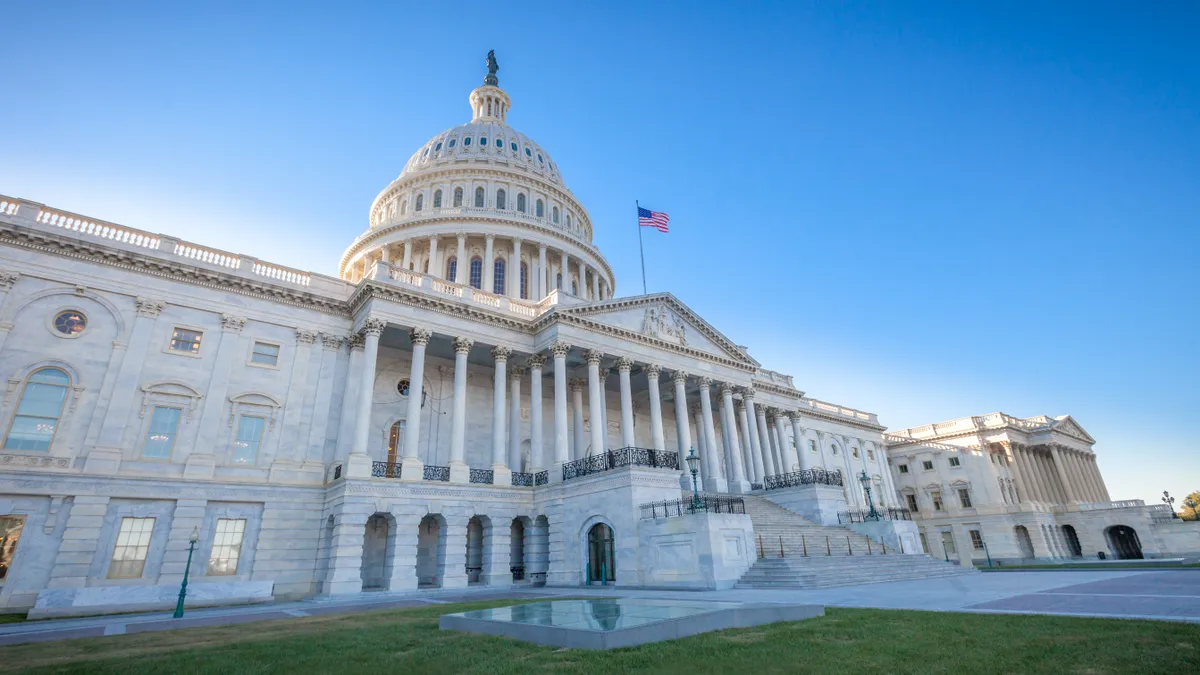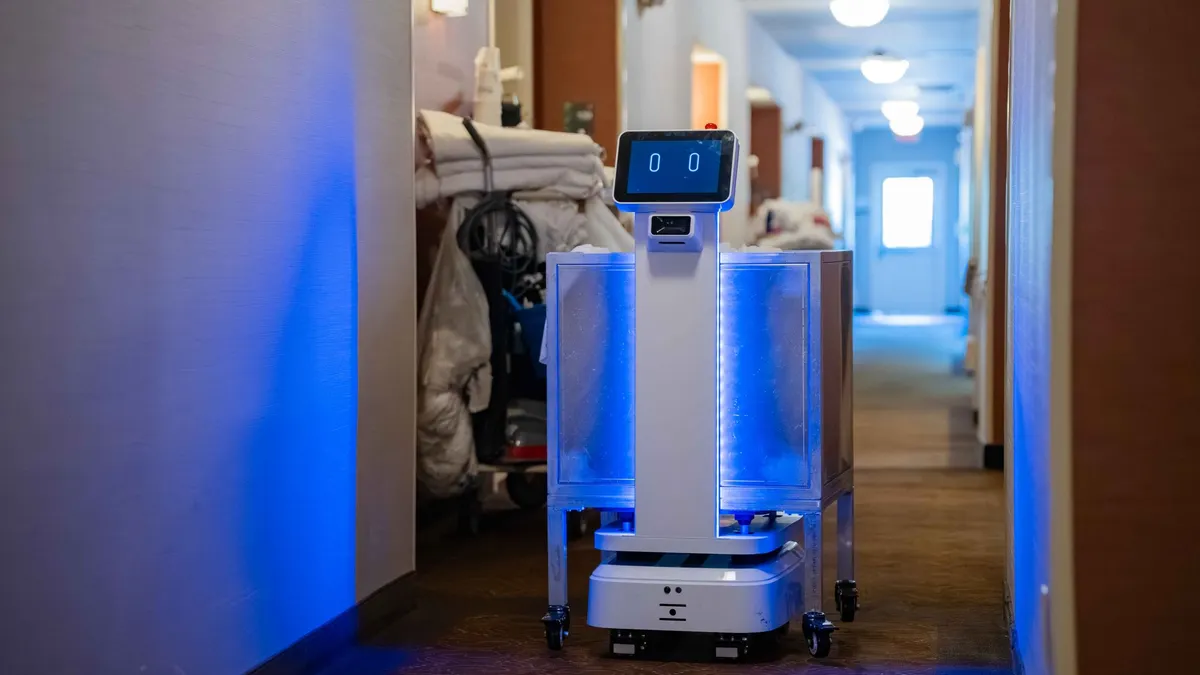With major tourism events including the World Cup, the Olympics and the United States' 250th anniversary on the horizon, travel technology plays a critical role in powering bookings and distribution across such a large scale.
“Our member companies connect international travelers and Americans with local communities,” said Laura Chadwick, president and CEO of the Travel Tech Association, which represents online travel agencies, travel management companies and travel tech startups such as Expedia, Tripadvisor and Airbnb. “We are the ones that bring them.”
In addition to recent work “highlighting our [industry’s] role in supporting major tourism events,” the Travel Tech Association has spearheaded educational efforts on Capitol Hill and advocated for policies it believes will benefit the travel industry.

Hotel Dive sat down with Chadwick to talk about the trade association’s priorities for this year, how the organization is adjusting to a new administration in Washington and what legislation is expected to impact hotels this year.
This interview has been edited for clarity and brevity.
HOTEL DIVE: What’s changed at the Travel Tech Association since you joined in 2022?
LAURA CHADWICK: A big undertaking was to do a rebrand of the association and really capture the spirit of travel and innovation in our new look. From there, we focused on raising our profile, not only with policymakers, but with the industry as well.
When I got here, the organization was 23 years old. It was founded in the early aughts, just as the travel e-commerce industry was being birthed. So we really had only focused on the distribution side of travel. We made the strategic move to expand, not only to cover distribution. Our founding members were the original innovators, and they continue to be so, but now we are bringing in the newest generation of travel tech innovators to bring them into our advocacy work.
People outside the travel technology industry may not be aware of the industry’s complexity and its many players. How do you raise awareness on Capitol Hill?
We launched a specific campaign to educate policymakers about who global distribution systems are, what they do and why they’re important. They are the data and IT backbone of the entire airline industry, and they’re important not just to airlines, but of course to hotels and all the different travel services on their platforms. As part of this campaign, we brought representatives of our companies up to Capitol Hill, and we met with a committee staffer who's worked on aviation issues for 10 years — and this staffer had never heard about global distribution systems! So we were like, “We're glad we came.”
The real beauty of a trade association is that we can do this on behalf of the whole industry. It saves companies time, money and resources to have an organization like Travel Tech lead that effort. We can take a step back, broaden the conversation and talk about the larger implications. From a government-relations standpoint, our main job is translation from businesses to Capitol Hill. You have to speak both languages.
What are some of your top priorities on Capitol Hill this year?
A bill that we've worked really closely with the American Hotel & Lodging Association on is the Hotel Fees Transparency Act of 2025. This bill was really close to being part of the continuing resolution bill at the end of 2024, but unfortunately, our provision, which cost the government nothing, was deleted from that larger bill.
"The real beauty of a trade association is that we can do this on behalf of the whole industry. It saves companies time, money and resources to have an organization like Travel Tech lead that effort. We can take a step back, broaden the conversation and talk about the larger implications."

Laura Chadwick
president and CEO, Travel Tech Association
Nonetheless, there's broad support for it. It has already passed the U.S. House of Representatives. It passed the Senate Committee on Commerce, Science and Transportation. It awaits Senate action. I'm optimistic about its passage by the end of the year.
How are you adjusting to a new administration this year?
We’re at the beginning of a new administration and new Congress. This happens once every four years — you have to spend a lot of time and effort educating new policymakers and administration staff members about who your industry is and how it's relevant to the issues of today. So we've been really focused on that.
We know that the Trump administration has taken a different approach to AI. The Biden administration was more interested in putting controls on it. Whereas the Trump administration, I think rightly so, said, “Let's see what innovation can happen here.”
We held a Capitol Hill focus briefing on AI in the travel industry to educate staff members about what's happening. What are the tools available right now? What is the future? What we do is bring that information to educate congressional staff about these policy issues.
Travel tech companies are innovating quickly. What future issues could you see coming up more in the next few years?
We're on record about the issue of major tech platforms’ self-preferencing practices, wherein they place their travel tools above organic search results. That continues to be an issue, and it's going to become heightened in this new world of one-click search. How will major tech platforms and others use their dominant position, and utilize AI tools, to further weaken competition among different service providers? We're really just beginning to dig into that idea, but it dovetails with everything: data privacy, data security, AI, regulation, competition in the marketplace. It's the culmination of all these topics. We are certainly keeping tabs on that.


















